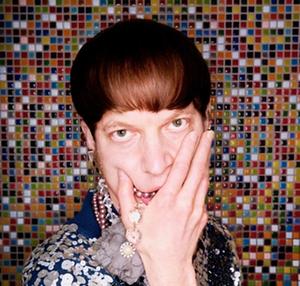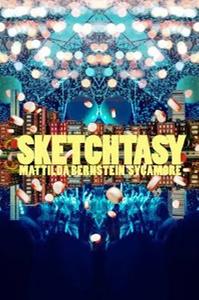
|
|
| photo: Jesse Mann | |
On your nightstand now:
Well, I don't have a nightstand, but I do have a kitchen table, and my kitchen table doubles as a desk, so I always have so many books piled on the table that they start to fall off, and then I have to make room on the chairs. I just read I'm Afraid of Men by Vivek Shraya, which is an elegant, spare, vulnerable, intimate and incisive essay that indicts not just the typical macho posturing, but also the complicity of women, queer people and trans people in sometimes furthering this tyranny. And I just started Revolting Prostitutes by Molly Smith and Juno Mac, which begins by saying, "Sex workers are the original feminists," and, just in the first few pages, already mentions sex workers organizing in Kenya, the U.S., Ethiopia and the U.K., so I know this is going to be good.
Also, I just started Dale Peck's first novel in a decade, Night Soil, which begins with the line, "I tried to be a good boy," so we know that when the narrator says, "I was interested only in what I could make paint show, not what it might show me," that this may not only apply to painting. Can't wait for all the layers.
And, speaking of painting, there's The Listening Room by Kathleen Rooney, a novel in flash fictions, each describing a painting by René Magritte from unusual perspectives, often those of a dog (or a series of dogs) named Loulou, all extremely sophisticated Pomeranians offering cogent critiques of literature, suicide, religion, sexism, meat-eating and war. Rooney deftly uses wordplay, free association ("plot by association") and double entendre to conjure the visual tricks of "the master"--"Is the point to bewilder? Or is it to be wilder?" Let's go with both.
And, I'm immersed in The Blue Clerk by Dionne Brand, which is a dialogue between poet and author, author and audience, audience and city, city and nation, nation and war, war and colonialism, especially on the level of language, the crimes of literature: "I walked into a paragraph a long time ago and never emerged from it."
And, speaking of language that unmakes language, there's Rebecca Brown's latest, Not Heaven, Somewhere Else, which is gruesome and gory and raw, the insides of fairy tales, tall tales, rumors and insinuations ripped open to reveal the pain inside the pain, or not just to reveal but to feel the horror between gasping and complicity.
Favorite book when you were a child:
I loved any book I could disappear into. When I was really little, I loved The Very Hungry Caterpillar by Eric Carle and The Velveteen Rabbit by Margery Williams. And then Watership Down by Richard Adams was the first big book I read, after I claimed it at the school book fair because it was by far the longest book there, and by sixth grade I was devouring Tolstoy's War and Peace.
 Your top five authors:
Your top five authors:David Wojnarowicz is maybe in his own category for me--since reading Close to the Knives when I was 19 was the first time I felt my rage in print--and also a sense of maybe a little bit of hope in a world of loss. I'll read anything by Rebecca Brown, Dionne Brand, Robert Glück, Dodie Bellamy, Claudia Rankine, Valeria Luiselli or Sarah Schulman. I guess that's more than five.
Book you've faked reading:
In high school I wrote a poem where I mentioned Nietzsche, and one of the other over-achiever students asked me if I'd ever read Nietzsche. Some of his work, I said. I don't think I'd read a word. When I went to college, I thought I wanted to be a philosopher because I was obsessed with drinking absinthe and talking about freedom with Sartre on the Left Bank, but then the books in that class, whatever they were--John Locke? Kierkegaard?--they scared me away from philosophy. Also, I realized I needed to get away from college, that was my own philosophy. And it worked!
Book you're an evangelist for:
Close to the Knives by David Wojnarowicz. Everyone should read it. Especially if it scares you.
Book you've bought for the cover:
Truthfully, there are so many! But I can't think of any right now, which either means they've blended into my favorites or I threw them away long ago.
Book you hid from your parents:
I read my sister's Nancy Drew books when no one was looking, because I was supposed to be a boy, and boys weren't allowed to read Nancy Drew. And the Judy Blume one where they say, "I must, I must, I must increase my bust," which was one of the ways all the boys in seventh grade taunted me. Had they read it? I don't know.
Book that changed your life:
Close to the Knives by David Wojnarowicz.
Favorite line from a book:
Let's go with "Do feelings lose their feeling if they speak to a lack of feeling?" from Claudia Rankine's Citizen.
Five books you'll never part with:
Close to the Knives and Memories That Smell Like Gasoline by David Wojnarowicz. The Gifts of the Body by Rebecca Brown. Times Square Red, Times Square Blue by Samuel Delany. Stagestruck: Theater, AIDS, and the Marketing of Gay America by Sarah Schulman.
Book you most want to read again for the first time:
Why read anything for the first time, when you can read it again?

